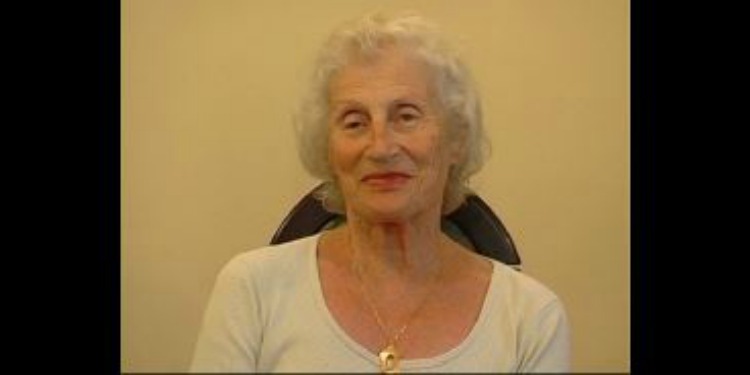An End to Childhood
The Fellowship | January 17, 2020

In late 1944, thousands of Jewish women being held in the infamous Auschwitz-Birkenau concentration camp were about to experience further injustice and humiliation. As the Russian army approached the Nazi facility in Poland, the Nazis there knew they had to hide the atrocities they had long been committing. And so, more than 8,000 women were “relocated” from Auschwitz to Bergen-Belsen, another Nazi camp. But Bergen-Belsen was in Germany, so the relocation was really a death march — the thousands of starving, sick, weakened prisoners having to walk from one European country to another, many of them dying or being murdered along the way.
Another Young Girl
One of the young women who survived the death march, but succumbed to disease after her arrival at Bergen-Belsen, was Anne Frank. Another survivor of the march, and of this final camp, is this week’s Israeli You Should Know.
Born to a Jewish family in Krakow, Poland, Miriam Akavia was forced into the Krakow Ghetto before she reached adulthood, along with thousands of others from the city’s Jewish community. From the ghetto, she was sent to Krakow-Plaszow concentration camp, before making the same Auschwitz-to-Bergen-Belsen journey as Anne Frank, another Jewish girl who longed to be a writer and who was only two years younger than Miriam. But unlike Anne, Miriam survived.
An End to Childhood
When the British liberated Bergen-Belsen, Miriam was still clinging to life. The Red Cross evacuated her to Sweden, where she eventually recuperated. After her recovery, Miriam made aliyah (immigrated to the Holy Land), where, like those medical workers who helped save her own life, she worked as a nurse. She also would go on to serve as Israel’s cultural attaché in both Budapest and Stockholm.
But, as noted above, Miriam was also interested in writing. In Israel, she studied literature at Tel Aviv University. And she would begin publishing novels in 1975, including one titled An End to Childhood. Serving as president of the Platform for Jewish-Polish Dialogue, she fought the same anti-Semitism she had experienced as a girl, educating young people from both Poland and Israel. And her books would also use her childhood experiences to educate the world, being read by people around the world, in many languages, including Hebrew, English, German, Danish, and French.
Miriam passed away five years ago, but her life lives on in her words, teaching the world and making sure the world never forgets the horrors experienced by Jews like herself and Anne Frank.
